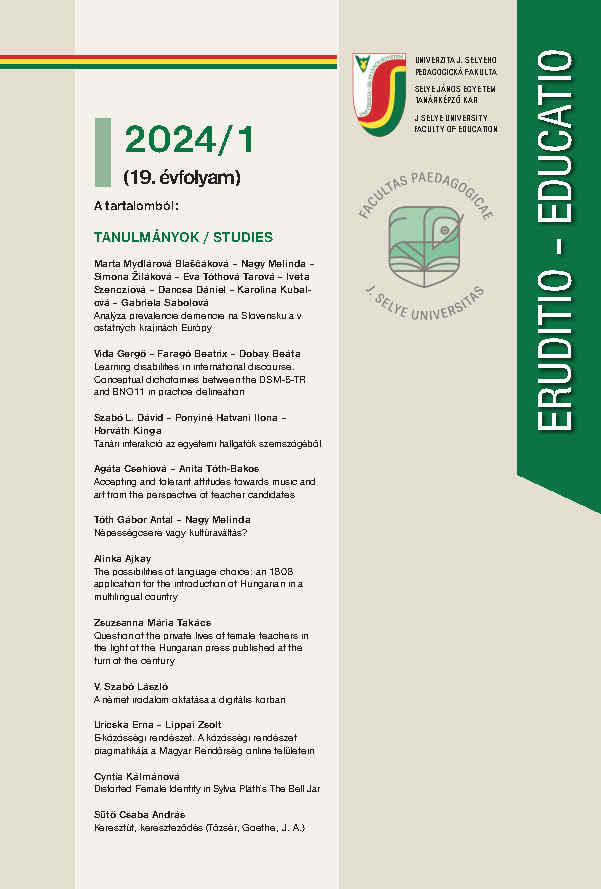Learning disabilities in international discourse
Learning disabilities in international discourse
Conceptual dichotomies between the DSM-5-TR and BNO11 in practice delineation
Author(s): Gergő Vida, Beatrix Faragó, Beáta DobaySubject(s): Social Sciences, Education, School education
Published by: Pedagogická fakulta Univerzity J. Selyeho
Keywords: APA; ICD11; learning disorder; special educational needs; diagnostics; DSM-5
Summary/Abstract: An examination of the conceptual definition of learning disabilities may be fundamental for interpreting the results of diagnostic procedures. The Diagnostic and Statistical Manual of Mental Disorders of the American Psychiatric Association (APA) and the International Classification of Diseases 11th Revision published by the World Health Organization (WHO) delineate a common diagnostic cluster system that enables multidisciplinary communication between different disciplines by providing a common professional language, vocabulary, and interoperability of systems. Several problems, including learning, are not only relevant to the field of education, but may also be relevant from a medical science perspective. Given the new discourse in the field of special needs education, such as the holistic approach, this is a fundamental requirement. This is not only relevant for a more effective diagnosis of learning disabilities but also for inclusion without an interdisciplinary discourse in which conceptual boundaries are not meaningful for different disciplines. The implementation of research findings in international discourse can also be successful if the findings are interpretable not only across disciplines, but also across national borders. Using secondary source analysis and desk research, we analysed the conceptual definitions of ICD and APA from the perspective of learning disabilities. Our results highlight fundamental correlations that may justify a reinterpretation of the way diagnostic results are used in comparison with previous versions of diagnostic systems. This may foreshadow the need to adapt the diagnostic system and improve the process in case it has not yet adapted the latest scientific findings and diagnostic clusters. In our view, the introduction of new diagnostic principles and clustering methodologies could be an argument for revising the structure and functioning of previous systems.
Journal: Eruditio - Educatio
- Issue Year: 19/2024
- Issue No: 1
- Page Range: 018-032
- Page Count: 15
- Language: English

